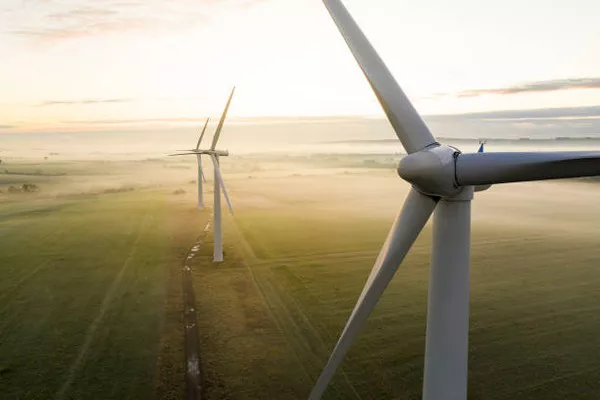The push for innovation in sustainable energy has led Swedish startup Sinonus to embark on a groundbreaking mission: repurposing discarded wind turbine blades into large batteries, sparking a revolution in energy storage solutions.
As wind farms continue to expand, the issue of decommissioned towers and turbines clogging landfills or requiring energy-intensive recycling processes looms large. Sinonus, with its visionary approach, seeks to breathe new life into these retired turbine blades by harnessing their lightweight carbon fiber to function as robust energy storage units, offering a second wind for these components post their primary use.
The Multipurpose Carbon Fiber Composite
Sinonus’ breakthrough lies in its utilization of a multipurpose carbon fiber composite extracted from retired turbine blades. By ingeniously charging this carbon fiber, the startup transforms it into a battery-like entity, paving the way for a sustainable energy storage solution that repurposes existing resources with ingenuity and efficiency.
Lithium-Ion Batteries and Grid Energy Storage
While lithium-ion batteries reign supreme in the realm of energy storage, challenges persist, particularly as renewable energy sources like solar and wind gain prominence. The limited lifespan and cycling capabilities of Li-ions, coupled with environmental concerns and thermal runaway risks, underscore the need for alternative approaches to energy storage.
Charging Lightweight Carbon Fiber for Energy Storage
Sinonus’ innovative endeavor involves infusing lightweight carbon fiber with conductive materials and electrochemical components to create an energy storage medium. By leveraging the exceptional electrical conductivity of carbon fibers and integrating them with active materials like lithium iron phosphate, Sinonus engineers have devised a composite structure that serves both as a mechanical reinforcement and an integral part of the battery.
The envisioned applications of this technology extend beyond wind turbine blades, potentially finding utility in electric vehicle frames, building structures, and more. Sinonus has already demonstrated the feasibility of its carbon fiber units in low-power devices, with plans to scale up their storage capacity to rival traditional Li-ion batteries.
As the demand for energy storage solutions intensifies with the burgeoning EV market and the proliferation of renewable energy technologies, innovative approaches like Sinonus’ self-charging carbon fiber turbine blades offer a promising avenue to diversify and enhance collective energy storage options, ushering in a new era of sustainable energy utilization.

